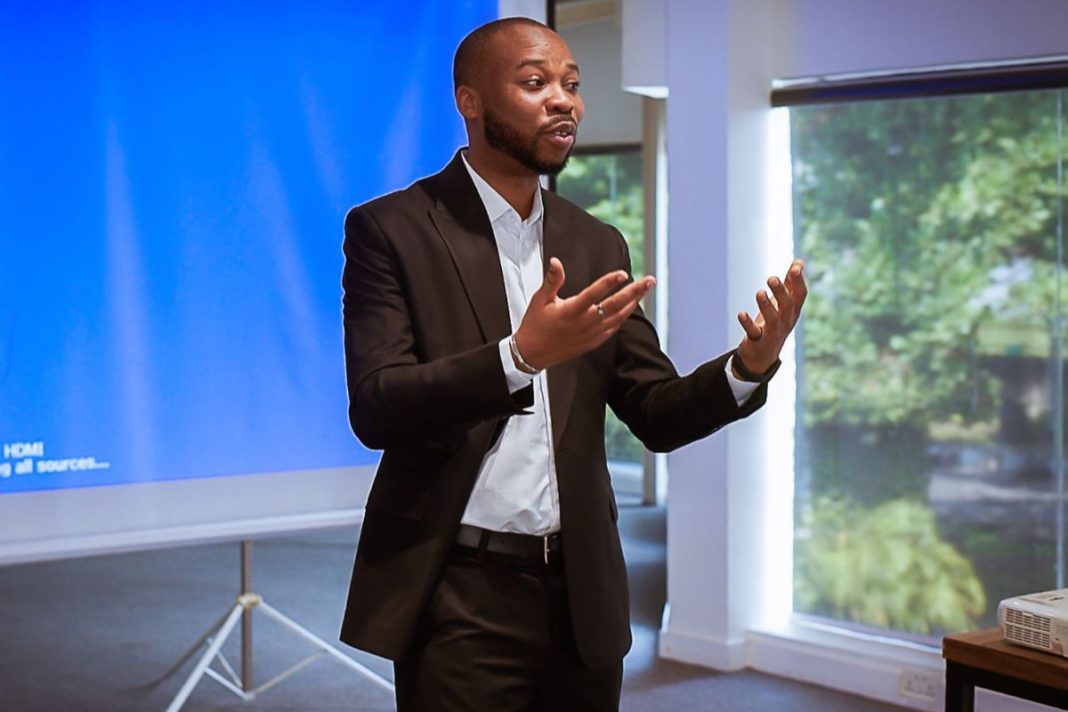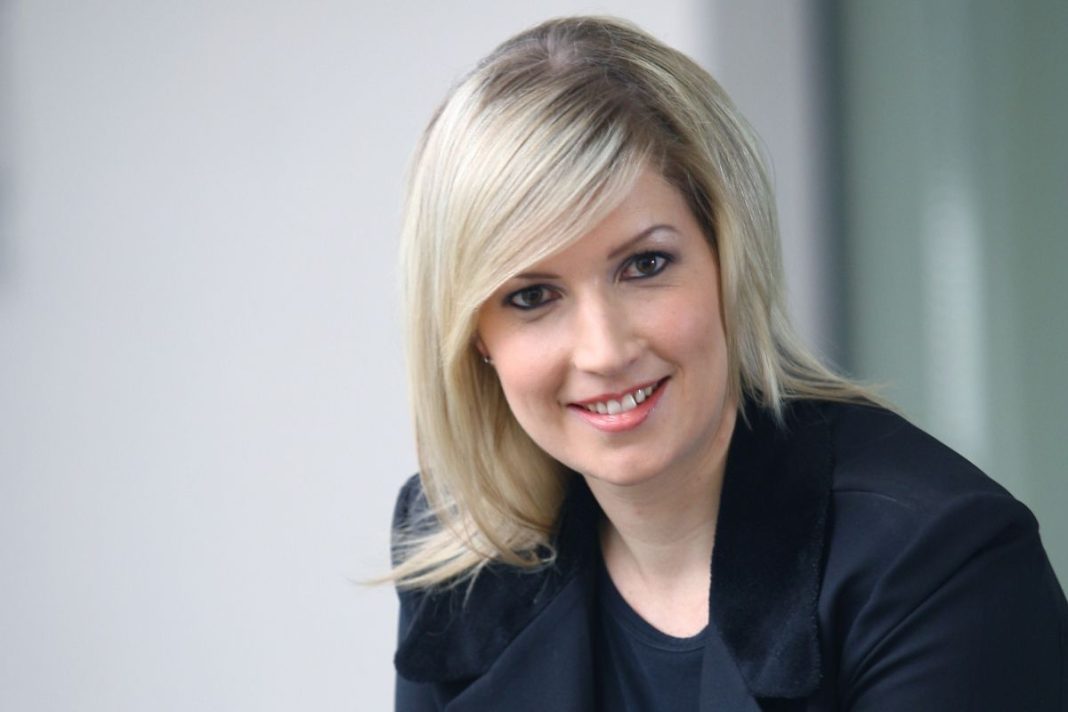Africa’s young, digitally skilled workforce is shifting global hiring dynamics as companies turn to the continent to fill critical talent gaps. In this conversation, Francis Osifo, founder and CEO of Rayda, unpacks Africa’s growing role in the global talent economy and how platforms like Rayda are building trust and efficiency in a remote-first world.
Africa’s young population is fast emerging as the world’s most valuable economic asset. The continent’s 440 million youth aged between 15 and 35 are not just the largest labour pool globally, they are the next frontier of global productivity. According to the African Development Bank, by 2030, young Africans will account for almost 40% of the world’s youth, forming a digitally skilled, multilingual, and globally connected workforce.
This shift comes at a time when the global economy faces an escalating talent shortage. The World Economic Forum estimates that by 2030, over 85 million skilled workers will be needed worldwide, creating potential losses of up to US$8.5 trillion in unrealised annual revenues.
Africa’s youth are uniquely positioned to fill that gap – they are the talent the world increasingly depends on. As digital infrastructure strengthens and remote work becomes standard, Africa’s integration into the global labour market is moving from peripheral to pivotal.
Startups, freelancers, and digital service companies are capitalising on this opportunity, positioning African professionals as competitive and indispensable players in the global economy.
A new report co-authored by Rayda, a technology firm helping businesses manage assets and teams remotely, finds growing international demand for African gig economy talent, underscoring the continent’s rising strategic value.
In this conversation, Francis Osifo, founder and CEO of Rayda, reflects on Africa’s evolving labour market, the infrastructure gaps that persist, and how platforms like Rayda are building trust, visibility, and efficiency in an increasingly remote-first world.
ANF: Francis, could you start by introducing yourself and sharing a bit about the story behind Rayda?
FRANCIS OSIFO: My name is Ogochukwu Francis Osifo, and I’m the co-founder and CEO of Rayda. I like to tell the story of how Rayda started because it really came from a practical challenge.
Before Rayda, I co-founded a company called 54Gene, which was quite well-known in Africa’s startup space. The idea for Rayda came when we hired our first employee in Kenya, while I was still in Nigeria. I needed to get a computer to her, and the cost in Kenya seemed high, so I thought, “Why not buy one here and ship it over?”
It turned out to be a bad idea. The computer got stuck in customs, the duties were high, and it took weeks to deliver. That experience got me thinking: how do companies that employ people across African countries handle hardware procurement and logistics?
When I eventually left 54Gene, that became the seed for Rayda. Today, Rayda helps companies buy, manage, and recycle IT equipment for their global workforce. We’re now at an interesting inflection point because, by the end of this month, we’ll be announcing an evolution of the company. But our core mission remains enabling distributed teams to access the tools they need to work effectively—anywhere.
The report you co-authored, the Rayda/FORWA Remote Work Report 2025, is getting a lot of attention. How did you go about selecting the focus countries and collecting the data?
We wanted a balanced view of Africa’s main remote-work markets—so we intentionally picked a mix that covered Western, Eastern, and Southern Africa. We focused on Nigeria, Kenya, South Africa, Ghana, Egypt, and Rwanda.
We’re a startup, so we also had to consider where we could realistically access data and respondents. We sent out detailed questionnaires and used our network of remote workers to reach others. On the employer side, it was easier because many of them were already our clients or partners, mostly US and European companies hiring in Africa.
We knew it wouldn’t be fully representative of every market, but the goal was to create a foundation. This is our first full report, and we wanted to identify the right questions: What’s the current state of play? What are the key challenges and opportunities? Over time, we’ll go deeper into more countries as interest grows.
From your perspective, what are global companies really looking for when they hire in Africa?
At the end of the day, talent is talent. A hiring manager who finds a great developer in South Africa or Armenia is ultimately thinking about one thing: how easy is it to hire, pay, and support this person so they can be productive?
So, the ease of doing all that matters a lot. If a company finds that it’s harder for a developer in one country to stay productive, maybe because of power issues or poor internet, they naturally gravitate toward countries where it’s easier.
Our goal with the research was to understand the decision-making process. We mainly spoke with companies that had already hired in Africa or at least tried. That gave us a clearer view of what drives success and what still holds employers back.
Payments and exchange rates often complicate remote hiring. From your experience, how do employers navigate those issues?
Good question. Most compliant global companies today use what’s called an Employer of Record (EOR). It’s a third-party service that handles payroll, taxes, and compliance, making payments cleaner and faster.
For example, Deel acquired a South African company a while back to strengthen its African payment infrastructure. Other firms in Kenya are offering similar services now. These platforms allow employers to pay local workers in their local currency through formal systems.
We’re also seeing some companies experimenting with crypto rails for payments, though that’s still on the fringes. But generally, for serious employers, especially those in North America and Europe, the EOR model is becoming standard. It helps them stay compliant while ensuring workers get paid on time.
What’s still opaque, though, is how exchange rates are set. These platforms don’t always disclose how they calculate conversions, and that can affect how much money remote workers actually take home.
Your report calls AI a “major disruptor.” How are employers adjusting their hiring priorities in light of that?
We’ve seen a shift. Initially, Africa’s remote work boom was heavy on customer support and data-entry roles. Those are the first being automated by AI.
Now, demand is moving toward higher-skill areas like data science, machine learning, and software engineering. There’s incredible talent on the continent in these spaces. Some African countries are quietly building really strong machine-learning pipelines.
But yes, automation is changing the game. Even local AI startups are developing tools that can handle customer calls in local languages, which means companies may no longer need thousands of support agents, they might just need a few people to manage the AI systems.
The real question now is: what happens to the young workforce? My hope is that we all start upskilling fast enough to stay relevant in this new field. The opportunity is still huge, but the focus must shift to higher-value digital roles.
Beyond hiring, you’ve spoken about the importance of governments and recruiters in spotlighting African talent. Can you expand on that?
Absolutely. At events in places like Silicon Valley, you see delegations from India or Southeast Asia actively promoting their talent pools. They’re not waiting for companies to “discover” them.
Africa needs that same intentionality. Governments talk a lot about training talent, but not enough about showcasing it. We need policies and initiatives that promote Africa’s skilled workforce globally, just like how we market tourism.
Look at Singapore: it has positioned itself as a hub for AI and tech talent. We can do the same, country by country, by identifying where our strongest skills lie and marketing that globally. It’s about quality, not just volume. Companies will always pay for quality.
Finally, what conditions need to improve to make remote work truly sustainable for African professionals?
Two things stand out. First, infrastructure, especially stable power and reliable internet. Fixing those two alone would solve half the challenges of remote work in Africa.
Second, narrative. We need to talk about our talent the way we talk about our landscapes and culture. Governments, agencies, and even private firms should actively brand Africa as a source of world-class digital professionals.
That combination, strong infrastructure and strategic storytelling, would make remote work not just a stopgap, but a real economic driver for the continent.
bird story agency





